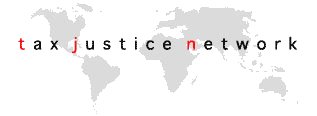These observations are an additional “supplement” to the series on the “financial crisis” that started with Once upon a time there was the market in August, 2011 – with added comments in September and November. As well as other related papers, such as Of mice and men December 2011 followed in January 2012 by The treacherous art of whining and Financial stupidocracy.
It’s practically impossible to stay up-to-date on this subject, because of its messy complexity and the confusing “news” added every day. But some “revelations” are worth quoting.
While we are perennially flooded with awesome and contradictory pseudo-news and repetitive disaster prophecies, a fact that has been obvious for many years, though obstinately ignored, was “suddenly” discovered by James Henry in a study (published on July 22, 2012) on behalf of TJN Taxjustice Network, “an international coalition of researchers and activists with a shared concern about the harmful impacts of tax avoidance, tax competition and tax havens”.
A summary of the TJN study – and the pdf full text – are online.
There are also reports published by the BBC and The Guardian.
It has been pretty clear for a long time that this problem exists, that it’s enormous, and that it’s getting worse. But this appears to be the first (and, so far, the only) attempt to estimate its size. According to Taxjustice Network there are ten million people worldwide with money hidden in “tax havens”. A large number, but only 0.0014 percent of humanity. And ten thousand billion dollars belong to 92 thousand people (or undefined “entities”) – over a hundred billion each.
The total of money so hidden is estimated between 21 and 32 “trillion” (thousand million) dollars. “As much as the combined gross domestic product of the U.S.A. and Japan”. The actual amount is certainly much larger, because several ways of concealing wealth are not explored in this analysis.
“Offshore”, by the way, is to a large extent a figure of speech. Tax havens aren’t only in remote islands. In several countries (not only in Switzerland, Monaco or Liechtenstein) they are hidden in dark corners quite close to apparently “legitimate” bank accounts.
A surprising fact is that James Henry’s analysis is based on publicly available sources. Why did nobody else, so far, bother to check them?
A somewhat naïve question asked by some economists is why such large amounts of money are “left idle”. The answer is disgustingly simple: they aren’t idle at all. They are actively playing the financial gambling game. Without the risk of running, or investing in, real business. And comfortably removed from the limelight. Willingly helped, of course, by the advisors an manipulators, who in turn hide their own profits in the same tax havens.
The vicious circle of this merry-go-round continues to grow. And there is an appalling lack of commitment in doing anything about it by governments worldwide and international institutions that are supposed to be watchdogs.
It’s pretty obvious that a substantial part of the money in tax havens is owned by organized crime, terrorists, bloodthirsty dictators, arms smugglers, corrupt politicians and all sorts of other crooks. Seizing their cash (and all other belongings, including real estate) would have a double benefit. Fighting crime – and finding money that would help to get out of the worldwide “crisis” (also reducing the burden on honest taxpayers).
Milder procedures could be applied to the owners of hidden money that was originally “legitimate”. But, even in such cases, they should be contemned to pay the taxes they have evaded, plus appropriate fines for violating the law. This isn’t a matter of revenge or punishment, but simply of finding money that can be used for all sorts of desirable purposes.
We don’t even need to believe that all of the enormous swindle is an organized plot. Part of it can be a “natural migration” to easily fertile fields comfortably removed from prying eyes. What is needed is an organized, obstinate, practical commitment in exploring the dark caverns of evasion.
This isn’t as difficult as it may seem. The 46 pages of James Henry’s report are full of very specific details. And of course much more could be discovered by putting other competent people to work on further searching.
We must leave it to skilled and dedicated accountants to calculate how much money could be found. It’s very likely to be considerably more than the staggering trillions identified so far. Even so, it may not be enough to solve all of the world’s financial problems. But, if well used, it could go a long way in reversing the trend from the current overemphasized “crisis” to sensible worldwide recovery.
Of course even the most effective cleanup conceivable would leave the “very rich” in a quite comfortable financial heaven. But what really matters is to help everyone else to get out of hell (or the fear of falling into it).


